Applications for Ohio Farm Bureau Health Plans now available
Members have three ways to apply: contacting a certified agent, calling 833-468-4280 or visiting ohiofarmbureauhealthplans.org.
Read MoreOil and gas production is still a big business for Ohio. In fact, the state realized an increase in production in the latter part of 2019. But the oil and gas industry, and more specifically the lease agreements that are made within it, have also been the reason for a good amount of litigation.
Ohio Farm Bureau Policy Counsel Leah Curtis tackles the Browne v. Artex lawsuit that is getting some attention recently.
Ty Higgins Oil and gas production is a big business for Ohio. In fact, the state realized an increase in production in the latter part of 2019. But the oil and gas industry and more specifically the lease agreements that are made within it have also been the reason for a good amount of litigation. That’s why we bring in Ohio Farm Bureau Policy Counsel Leah Curtis to tackle one of the lawsuits that is getting some attention recently for this Legal with Leah.
Brown v. Artex deals with some terminology that sets the time frame of an oil and gas lease. Those leases, Leah, typically have two terms. One, to get the infrastructure set up, the other for actual production of the oil or gas. And there’s a phrase in some of these leases that is causing some consternation. Tell us about the contract language and give us some background on this particular case.
Leah Curtis So the phrase is, ‘So long as oil and gas is produced in paying quantities’ or some version of that. They all differ a little bit depending on the lease and who wrote it. But basically the lease says it stays in effect as long as that oil and gas is being produced. That ends up being the subject of lots litigation because when is it producing? What is paying quantities? When did that happen? In this case, the Browns were Farm Bureau members who had an oil and gas lease on their property and it was in that secondary term that went until oil and gas was no longer produced. They alleged that there was a significant period of time in which there was no production on the property. And if there was no production, what that would mean is that the lease expired. And it’s not a breach. It doesn’t mean somebody did something wrong. It just means the lease ended. If that were the case, they could go and look for another lease. They could renegotiate or they could just leave their land undeveloped. So that’s ultimately what the case is about. What the Supreme Court was actually looking at, though, was what is the term or the length of time that they had to allege this expiration. How long did they have to bring that case and how far back can the court look to see if there was production or not? And so it’s common when the Supreme Court gets a case. They’re not really deciding the final question. They’re deciding one piece of it. And that’s what we had in this situation.
Ty Higgins The case has had quite a journey. You mentioned it was considered by the Ohio Supreme Court. It’s been back and forth from the lower courts as well.
Leah Curtis So like most cases, they travel a long and winding road. So this originally started out in the lower courts in Guernsey County, moved on to the appellate courts and then ultimately was pending at the Ohio Supreme Court for quite some time as well. So in that lower court, the judges applied a 15 year statute of limitations. They said you could look back 15 years, and that is under a law that says if there’s a breach of an oil and gas lease, then you use a typical contract statute of limitations. Now, I’ll note that now the law has changed and that’s actually eight years. So it’s even shorter if you were to file a case today and have that same theory. So the court only looked back about 15 years. That didn’t include the evidence that the Browns felt showed the lack of production and so they went on to appeal once again to the Ohio Supreme Court. As the appellate court said, that was correct as well. Now, the Ohio Supreme Court has reversed a decision and they have said, no, actually, there should be a 21 year statute of limitations, and that is the statute of limitations that’s typically applied to what we call our quiet title actions or actions where we’re trying to determine who owns property. And they looked at what the lower court said and said, well, that reasoning actually would only apply if there was a breach. And in this case, nobody violated the terms of the lease. Nobody broke their promises. What just happened is that a lease may have expired on its own terms, just like if I rented an apartment from you. And on December 31, it ended and it ended. And I just moved out and we moved on in other ways. So this will now send the case back to the lower courts again, and they will have to proceed with their case in line with the Supreme Court’s decision.
Ty Higgins This is big because the Browns aren’t the only Ohio Farm Bureau member with a lease for an oil and gas production facility. This is going to be widespread. The results are going to have implications on many, many contracts out there.
Leah Curtis That’s the thing with contracts. It is the law and the courts that determine contracts. We can’t change the statute at the Statehouse and change what a contract says. So having this clarification from the court means that when we look at these other leases, particularly these really old leases, we know now that that they have that 21 year period. And that also means these cases take a lot of time to build. When you want to bring a case like this, you have to go back through a lot of records. And so this also ensures that people have adequate time to really look for everything and make their case and be able to bring their their claim.
Ty Higgins Litigation, one way to get contract disputes like Brown v. Artex straightened out. But is there a more permanent fix out there?
Leah Curtis So there’s always the opportunity to change the law. But as I said, if a contract’s already been written and signed, you can’t change the law that affects it except for in some very, very limited situations. Well, we can look at the laws for contracts going forward. You know, we at Farm Bureau are going to use all our tools in the tool box and one of those is legal advocacy. And that’s where we see a lot of changes happening to things that deal with oil and gas leases because those leases are already written. And it’s how they’re interpreted is what determines what they mean, not changing the law at the Statehouse.


Members have three ways to apply: contacting a certified agent, calling 833-468-4280 or visiting ohiofarmbureauhealthplans.org.
Read More

With the Family Forest Carbon Program, you can have a successful farm and get paid to grow healthy forests.
Read More
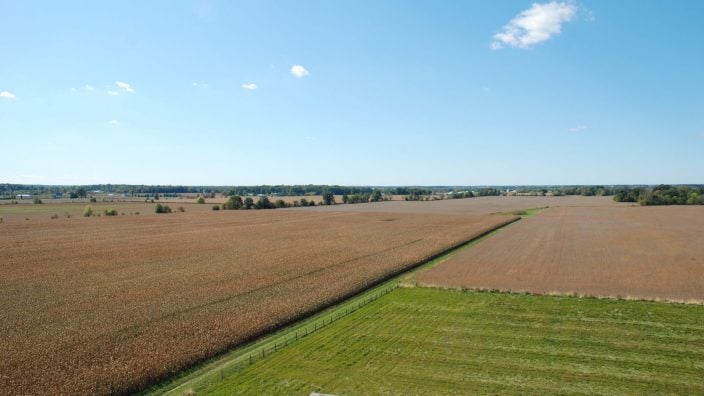
Ohio Farm Bureau recently sent a letter to Congress calling for the swift passage of the Farm, Food, and National Security Act of 2026 (HR 7567).
Read More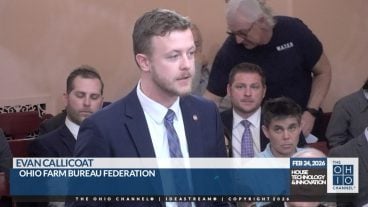
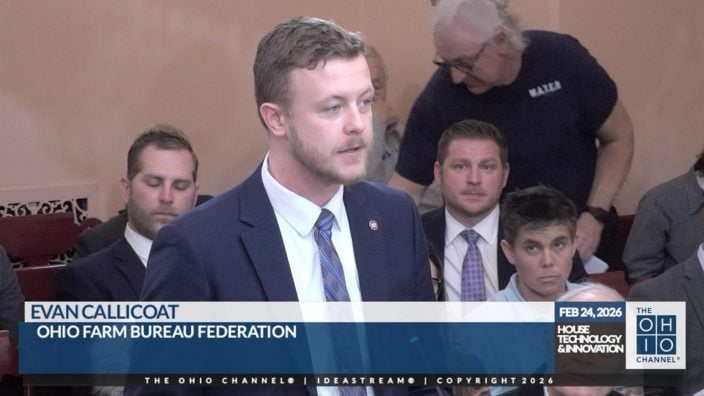
House Bill 646 would establish a Data Center Study Commission to examine the impact of rapid data center development across the state.
Read More
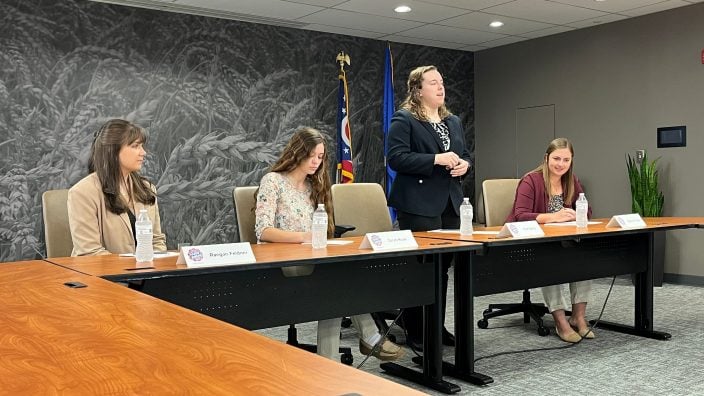
Collegiate Farm Bureau serves as a connection to current industry professionals and equips the next generation with the essential tools and resources needed to excel in their careers.
Read More
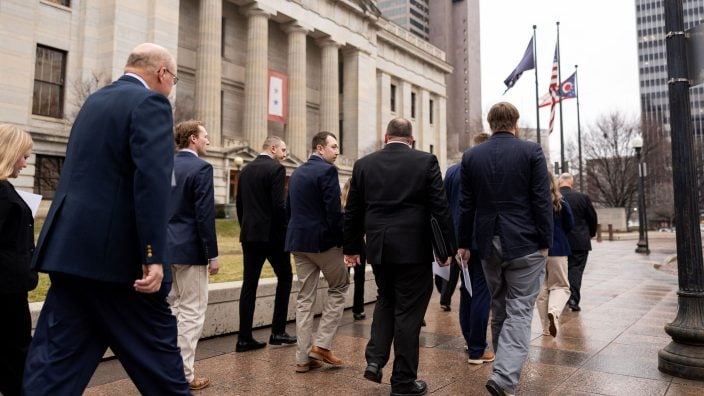
Ohio Farm Bureau members met one-on-one with state legislators and staff to discuss policy priorities impacting Ohio’s farms and rural communities.
Read More

Legacy nutrient deductions enable new farmland owners to claim deductions on the nutrients within the soil on which healthy crops depend.
Read More

Farmers, agribusinesses and community members are encouraged to nominate their local fire departments for Nationwide’s Nominate Your Fire Department Contest through April 30.
Read More

Introduced by Sen. Paula Hicks-Hudson, SB 120 would establish the Urban Farmer Youth Initiative Pilot Program.
Read More

Gases, vapors, and fumes can all create risk. How can we measure and protect ourselves from them?
Read More